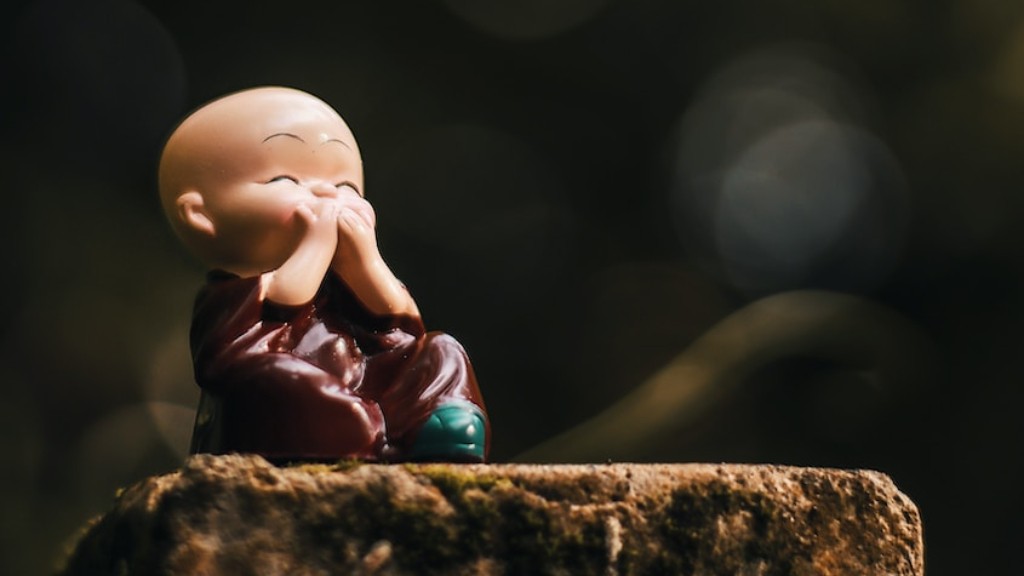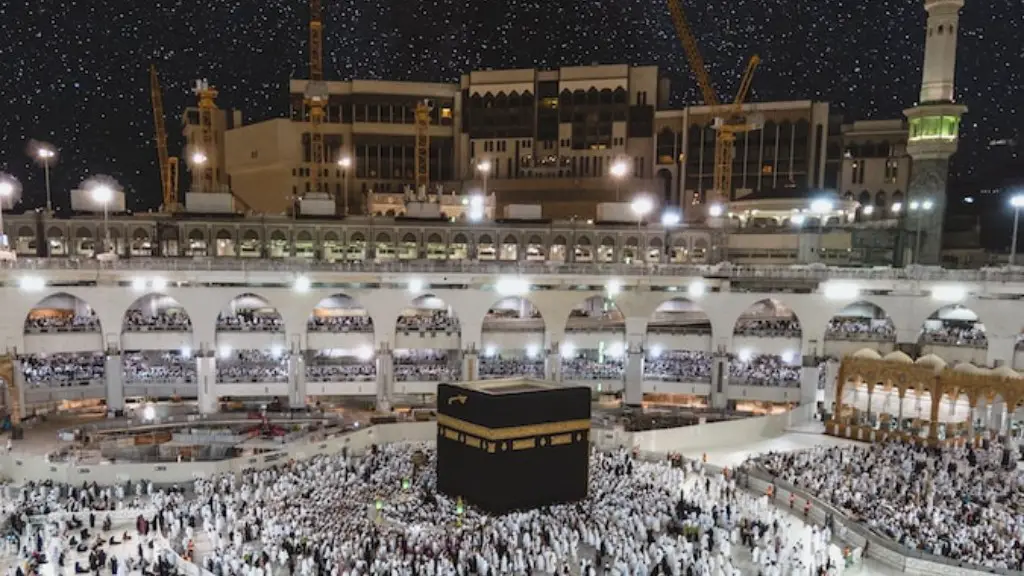Buddhism is a religion based on the teachings of Siddhartha Gautama, who was born in Nepal in the 6th century BCE. Gautama was born into a wealthy family, but he was dissatisfied with his life of luxury. He left his home and family to live as a ascetic holy man, and he eventually attained enlightenment. After his enlightenment, Gautama Buddha preached his teachings to others, and Buddhism began to spread.
The major belief of Buddhism is that it is possible to achieve liberation from suffering. This liberation can be attained through the practice of the Noble Eightfold Path, which includes right understanding, right thought, right speech, right action, right livelihood, right effort, right mindfulness, and right concentration. Buddhists also believe in karma, which is the law of cause and effect.
The major belief of Buddhism is that through regular practice and meditation, people can achieve a state of nirvana, or perfect peace.
What are the 3 main beliefs of Buddhism?
Buddhism is a religion that is based on the teachings of Siddhartha Gautama. The main principles of this belief system are karma, rebirth, and impermanence.
The Four Noble Truths are the foundation of Buddha’s teachings. They are the truth of suffering, the truth of the cause of suffering, the truth of the end of suffering, and the truth of the path that leads to the end of suffering. While they leave much left unexplained, they provide a framework for understanding the human condition and the path to liberation from suffering.
What are 5 basic beliefs of Buddhism
The Five Precepts are guidelines for living a moral and ethical life. They are:
1. Refrain from taking life
2. Refrain from taking what is not given
3. Refrain from the misuse of the senses
4. Refrain from wrong speech
5. Refrain from intoxicants that cloud the mind.
These precepts provide a framework for living a life that is in harmony with others and with the world around us. By following them, we can avoid causing harm to others and ourselves, and can live a life of peace and compassion.
Buddha’s most important teachings are The Four Noble Truths. These Truths are essential to understanding the religion. Buddhists embrace the concepts of karma (the law of cause and effect) and reincarnation (the continuous cycle of rebirth). The Four Noble Truths are: 1) All life is suffering; 2) Suffering is caused by our desires and attachments; 3) Suffering can be ended by eliminating our desires and attachments; and 4) The path to the elimination of suffering is The Eightfold Path.
What type of religion is Buddhism?
Buddhism is a religion that does not believe in a single creator god. Instead, it believes in a pantheon of long-lived gods. However, these gods are not seen as the ultimate reality. Nirvana, the highest state of being, is seen as being beyond the gods.
Buddhism is a religion that is based on the belief in karma, reincarnation, and enlightenment. The Buddha, Siddhartha Gautama, taught that there is suffering in the world because people are attached to things that they cannot control. The only way to end suffering is to let go of these attachments and to live in the present moment. The Buddha also taught the Four Noble Truths, which are that suffering exists, that it has a cause, that it can be ended, and that there is a path to ending it. The Eightfold Path is the path that leads to the end of suffering. It includes right understanding, right thought, right speech, right action, right livelihood, right effort, right mindfulness, and right concentration.
Why do Buddhists not believe in god?
Buddhism is a religion focused on spiritual liberation, but it is not a theistic religion. The Buddha himself rejected the idea of a creator god, and Buddhist philosophers have even argued that belief in an eternal god is nothing but a distraction for humans seeking enlightenment.
Buddhism is a religion and philosophy based on the teachings of the Buddha. The Buddha was a teacher who lived in India between the mid-6th and mid-4th centuries BCE. He taught that people can escape suffering by following the Eightfold Path. This path includes Right Understanding, Right Thought, Right Speech, Right Action, Right Livelihood, Right Effort, Right Mindfulness, and Right Concentration.
What do Buddhists believe happens after death
Buddhist teaching views life and death as a continuum, believing that consciousness (the spirit) continues after death and may be reborn. Death can be an opportunity for liberation from the cycle of life, death and rebirth.
There are some high-level Buddhists who have drawn analogies between Jesus and Buddhism. For example, in 2001, the Dalai Lama said that “Jesus Christ also lived previous lives”, and added that “So, you see, he reached a high state, either as a Bodhisattva, or an enlightened person, through Buddhist practice or something like that.” Thich
Do Buddhists believe in heaven?
In Buddhism, there is no concept of punishment or reward. There is no divine being who decides who goes to hell or heaven. There is merely the illusory results of our thoughts, words and deeds, which we call karma.
Buddhist teachings state that saṃsāra, or cyclical rebirth, is a process of transformation in which there are divine beings called devas (sometimes translated as ‘gods’) and other Buddhist deities, heavens, and rebirths. This process of change is believed to be guided by karma, or the law of cause and effect.
Is Christianity based on Buddhism
There is a lack of historical evidence to support the claim that Buddhism had any influence on the development of Christianity. Some scholars believe that there may have been some indirect influence, but most believe that any such influence is negligible. Christianity developed in a Jewish context in first-century Palestine, and there is no evidence to suggest that Buddhism played any role in its development.
There is no doubt that Buddhists are on to something when it comes to boosting wellbeing. As a religion, Buddhism is associated with happiness and this is because Buddhist thinking posits that happiness and sorrow are our own responsibility – and completely within our control. This is an empowering message that can help us to take control of our own lives and create the happiness we desire.
Does Buddhism have a holy book?
The Tripitakas are the most important Buddhist texts and are considered as the Holy books of Buddhism. The Tripitakas are a collection of Buddha’s teachings which are divided into three parts: Vinaya Pitaka, Sutta Pitaka, and Abhidhamma Pitaka.
For Buddhists, karma is not just about this life, but extends into future lives. Bad actions from a previous life can follow a person into their next life and cause bad effects (which Westerners might interpret as “bad luck”). Even someone who is Enlightened is not exempt from the effects of past karma.
Do Buddhists celebrate Christmas
Buddhists celebrate Christmas in their own way, often seeing Jesus as an avatar of being blessed to our beloved Earth.
Buddhists believe that there is no one supreme god or deity, although there may be supernatural forces that can help or hinder people on the path towards enlightenment. Buddhism teaches that ultimate reality, or Nirvana, is attained by following the Noble Eightfold Path and letting go of attachment to the material world.
Final Words
The major belief of Buddhism is that people are rebirths of other beings and that they are Reincarnated into another life form after they die.
Buddhism is a religion and philosophy encompassing a variety of traditions, beliefs and practices, largely based on teachings attributed to Siddhartha Gautama. According to Buddhist tradition, Gautama Buddha lived and taught in the eastern part of the Indian subcontinent sometime between the 6th and 4th centuries BCE. He is recognized by Buddhists as an awakened teacher who shared his insights to help sentient beings end rebirth and suffering.




